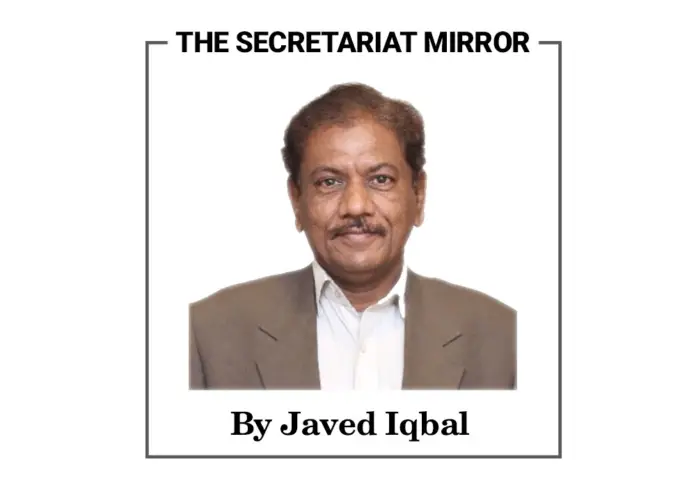The political uncertainty in the province has made the top administrative organ, the bureaucracy, a defunct sector with few outcomes for the public.
During the Pakistan Tehreek-i-Insaf’s Usman Buzdar government, the officers had no or very little interest in the administrative affairs as they were afraid of the ongoing accountability or were not led by the CM.
However, after a change of command in the province, it was supposed that things would be better. The sluggish bureaucracy would start functioning as the new CM would lead the system. But instead of uplifting merit, he, too, proved his father’s son.
Following in his father’s footsteps, the incumbent CM Hamza Shahbaz has started posting junior officers against senior slots. Shehbaz, during his chief ministership, had posted grade 19 officers like Ali Jan Khan, Sara Aslam, Imran Sikandar, Iftar Ali, Ahmed Raza Sarwar, Ahmed Javed and Usman Chaudhary etc against important grade 20 positions. Ahad Cheema was posted as Secretary Higher Education Department while he was a junior-grade 18 officer. CM Hamza Shehbaz, who is yet to go through the contest, has also posted Syed Najaf Iqbal Bukhari, a grade-19 officer, as Secretary Higher Education Department while his Special Secretary Naeem Ghous is a great 20 officer and doing training for grade 21. Likewise, Secretary Energy Department Ajmal Bhatti, Commissioner Sahiwal division Silwat Saeed are also grade 19 officers working against great 20. Deputy Commissioner and Administrator MC Lahore Umer Sher Chattha is a grade 18 officer but is allowed to continue against the grade 20 position.
It is the basic right of a journalist to question if he sees any maladministration or anomaly in the system. Like it is the right of every citizen to seek information under The Right to Information Act, 2013. The arrest of a journalist and anchorperson Imran Riaz Khan has raised many questions on the much-trumpeted slogans by almost all political parties on freedom of the press and freedom of expression.
After many amendments were made to the National Accountability Bureau to make it a risk-free organ, it was thought that the Anti-Corruption Establishment Punjab would play a key role against corrupt practices in the province. The ACE’s summoning of former principal secretary to CM Buzdar, Tahir Khurshid, in a ‘bribe for postings’ case and Sardar Kaura Khan Trust ‘lands and misappropriation of funds’ case show a different tale. A senior officer of the Pakistan Administrative Service criticized it, saying that it seemed as if Khurshid was singled out. He said that a whole mechanism is involved to make an appointment, transfer or posting. Why others who played a more important role were ignored by the anti-corruption establishment? he questioned.
Moreover, many people raise their fingers at the criminal justice system, and the role of the police in the given scenario. The arrest of a vocal critic of the ruling party is said to be pure harassment and must come to an end. Imran Riaz Khan had the other day, while addressing the chief of army staff, alleged that some sort of “neutrals” had been harassing him for no reason. There are about 17 cases registered against him across the province. The chequered judicial history of the country tells a painful tale.
The huge sum of salaries paid to some organs of the state while ignoring others goes against the equality principle enshrined in the constitution. Research by Sultan Shehryar, a research associate of the University of Swabi, has rightly pointed out that in an egalitarian society like Pakistan where the economy is dwindling, this cannot be lauded. This gives birth to the creation of intelligible differentia. A highly qualified teacher is comparatively less paid than an official of the ‘balance wing’. The state organs must work as a relief giving body to root out miseries of the people.
The PML-N-led government has announced austerity measures to control undue non-development expenses. All people would welcome it if they are implemented in letter and spirit. The need to enhance the performance of the public sector has been touching new lows. The PM Shehbaz Sharif-led federal cabinet has repealed the much-lauded Directory Retirement Policy of the outgoing PTI government led by Imran Khan. Without cutting the deadwood from amongst the functional bureaucracy, it would be a futile exercise to claim any improvement in the system. After a hectic exercise to address disparity in pays, interestingly a committee was constituted to resolve issues after new pay scales (2022) in the federal government. This shows half-baked policies.
The dark clouds of political uncertainty must be shed so that the legislature and the executive may deliver. The ACE should focus on improving its poor prosecution instead of playing the role of an arm twister. The 68 percent youth population of the province is needed to be made economically self-reliant; otherwise, it could be a potential threat to the system if the phenomenon of Imran Khan is not properly handled by the powers that be.







